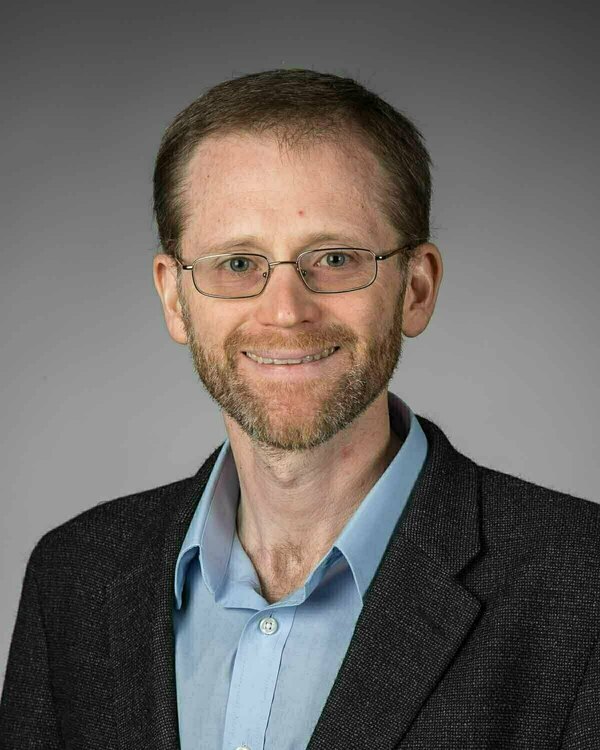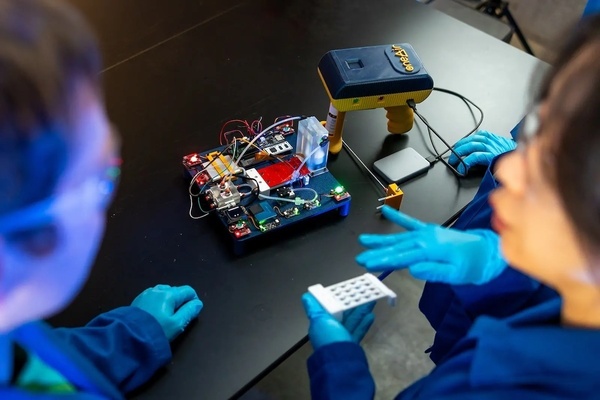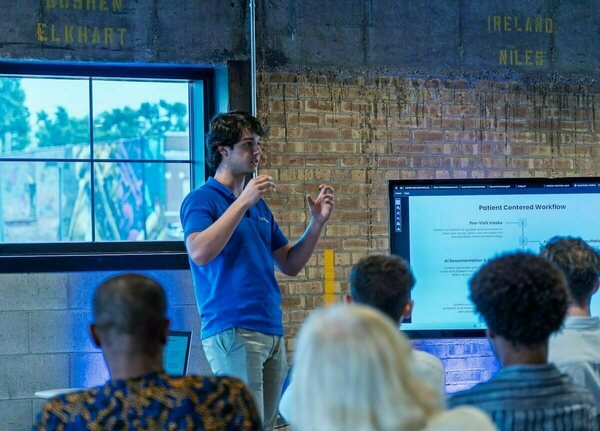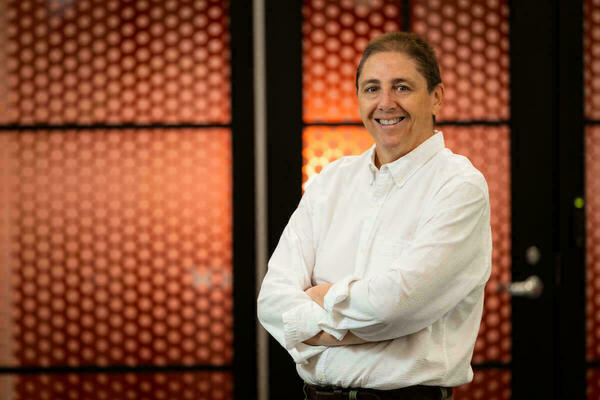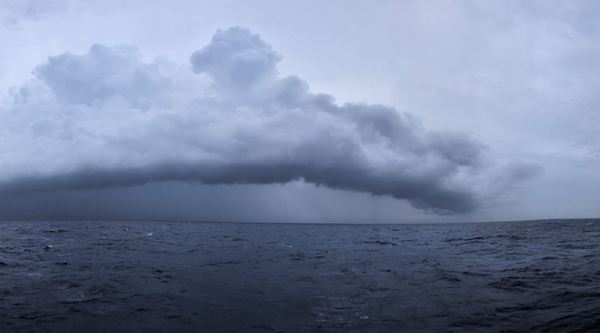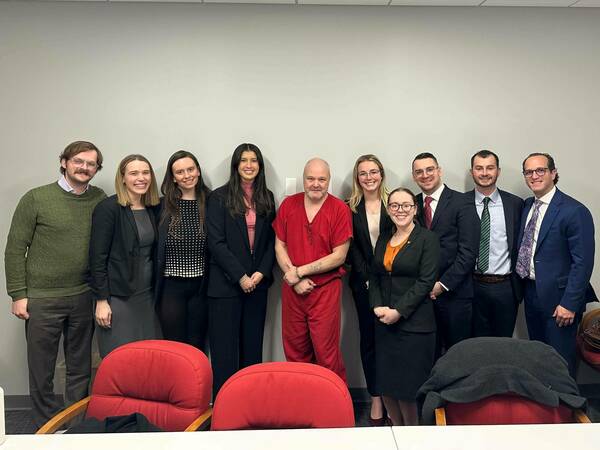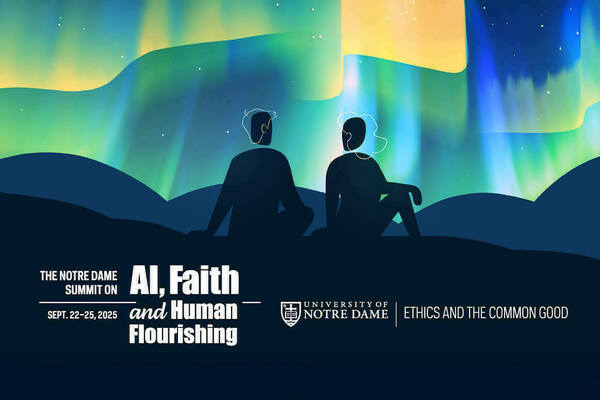Crossing borders with NDG grants: Engineering professor brings his research—and passion for fruit flies—to Mexico
Officially, Jeremiah Zartman studies and teaches about human health as an associate professor of chemical and biomolecular engineering at Notre Dame. Unofficially, he’s a passionate advocate for fruit flies. His fascination began during his time at Princeton, where Notre Dame alumnus and Nobel Prize laureate Eric Wieschaus—who served on Zartman’s dissertation committee—sparked his curiosity: “One of the things I overheard him say was, ‘You can do anything with fruit flies.’ I’ve spent my career trying to prove that.”
Using fruit flies, Zartman’s research focuses on developing new strategies for building tissues and treating degenerative tissue diseases through interdisciplinary research. “I think there are dozens of ways that fruit flies are saving the world,” he says, noting how fruit flies help scientists understand the genetic basis of many diseases, including cancer, and how six Nobel Prizes have used fruit flies to discover their research. “They have a proven track record of fundamental scientific advances that are sometimes not fully appreciated.”
So why bring this research to Mexico? For Zartman, it started with a connection he built with Dr. Marcos Nahmad. Nahmad is a faculty member at the Centro de Investigación y de Estudios Avanzados del Instituto Politécnico Nacional (Cinvestav), one of the leading research centers in Latin America. When Zartman met Nahmad, a fellow researcher who sympathized with his view on fruit flies, he was eager to work together. “It comes down to the people, the relationships," Zartman shares. "I think that's the most fundamental thing. Mexico has many things to offer to Notre Dame, but the biggest thing they have is their people.”
To fund their research and sustain their collaboration, Zartman applied for the Mexico Faculty Grant Program, which has made the work possible. Since being selected as a grant recipient in 2023, he has traveled to Mexico to give talks at Cinestav and the Instituto Politécnico Nacional (IPN), Zartman and Nahmad have led an international symposium, and both professors have hosted students from their respective institutions to assist with research. Additionally, the grant funded several research activities and collaborations, which led to peer-reviewed publications.
When Zartman traveled to Mexico this past spring to give the talks, he relied on the Notre Dame Mexico global location for support. “They were so accommodating,” Zartman says of Maria Mercedes Salmon and the ND Mexico team. “They made my trip better than I expected in many ways. If there are other faculty on campus who want to develop this relationship, their team is essential to finding success.”
One outcome of his recent trip to Mexico is that he hopes to host a student through the International Summer Undergraduate Research Experience (iSURE) program. Zartman has been an advocate of the importance of engaging graduate and postgraduate students in research at partner universities. He expresses that this is an opportunity, if given more resources and support, that would be particularly valuable in engineering and biology.
The hope is that his work can continue, deepening relationships in Mexico and expanding to have a global impact as well. “The dream would be to develop a series of presentations, online coursework for grad students in Mexico on the general idea of how to do AI in bio and how to incorporate feedback, control, and bioengineering into biological research,” Zartman says. “There are a lot of engineering techniques and tools and concepts that can be transferred into biology to make it just as foundational and quantitative as physics or chemistry is.”
That’s the dream. Thanks to support from the NDG grant, Zartman has been able to take important steps toward making it a reality—deepening collaborations in Mexico and advancing his research. In the meantime, Zartman simply hopes to change minds about fruit flies—from annoying pests to genetic wonders that can quite literally save lives.
Originally published by at mexico.nd.edu on July 30, 2025.
Latest Research
- Fighting for Better Virus DetectionAn electronic nose developed by Notre Dame researchers is helping sniff out bird flu biomarkers for faster detection and fewer sick birds. Read the story
- Notre Dame’s seventh edition of Race to Revenue culminates in Demo Day, a celebration of student and alumni entrepreneurship…
- Managing director brings interdisciplinary background to Bioengineering & Life Sciences InitiativeThis story is part of a series of features highlighting the managing directors of the University's strategic initiatives. The managing directors are key (senior) staff members who work directly with the…
- Monsoon mechanics: civil engineers look for answers in the Bay of BengalOff the southwestern coast of India, a pool of unusually warm water forms, reaching 100 feet below the surface. Soon after, the air above begins to churn, triggering the summer monsoon season with its life-giving yet sometimes catastrophic rains. To better understand the link between the formation of the warm pool and the monsoon’s onset, five members of the University of Notre Dame’s Environmental Fluid Mechanics Laboratory set sail into the Bay of Bengal aboard the Thomas G. Thompson, a 274-foot vessel for oceanographic research.
- Exoneration Justice Clinic Victory: Jason Hubbell’s 1999 Murder Conviction Is VacatedThis past Friday, September 12, Bartholomew County Circuit Court Judge Kelly S. Benjamin entered an order vacating Exoneration Justice Clinic (EJC) client Jason Hubbell’s 1999 convictions for murder and criminal confinement based on the State of Indiana’s withholding of material exculpatory evidence implicating another man in the murder.
- Notre Dame to host summit on AI, faith and human flourishing, introducing new DELTA frameworkThe Institute for Ethics and the Common Good and the Notre Dame Ethics Initiative will host the Notre Dame Summit on AI, Faith and Human Flourishing on the University’s campus from Monday, Sept. 22 through Thursday, Sept. 25. This event will draw together a dynamic, ecumenical group of educators, faith leaders, technologists, journalists, policymakers and young people who believe in the enduring relevance of Christian ethical thought in a world of powerful AI.



